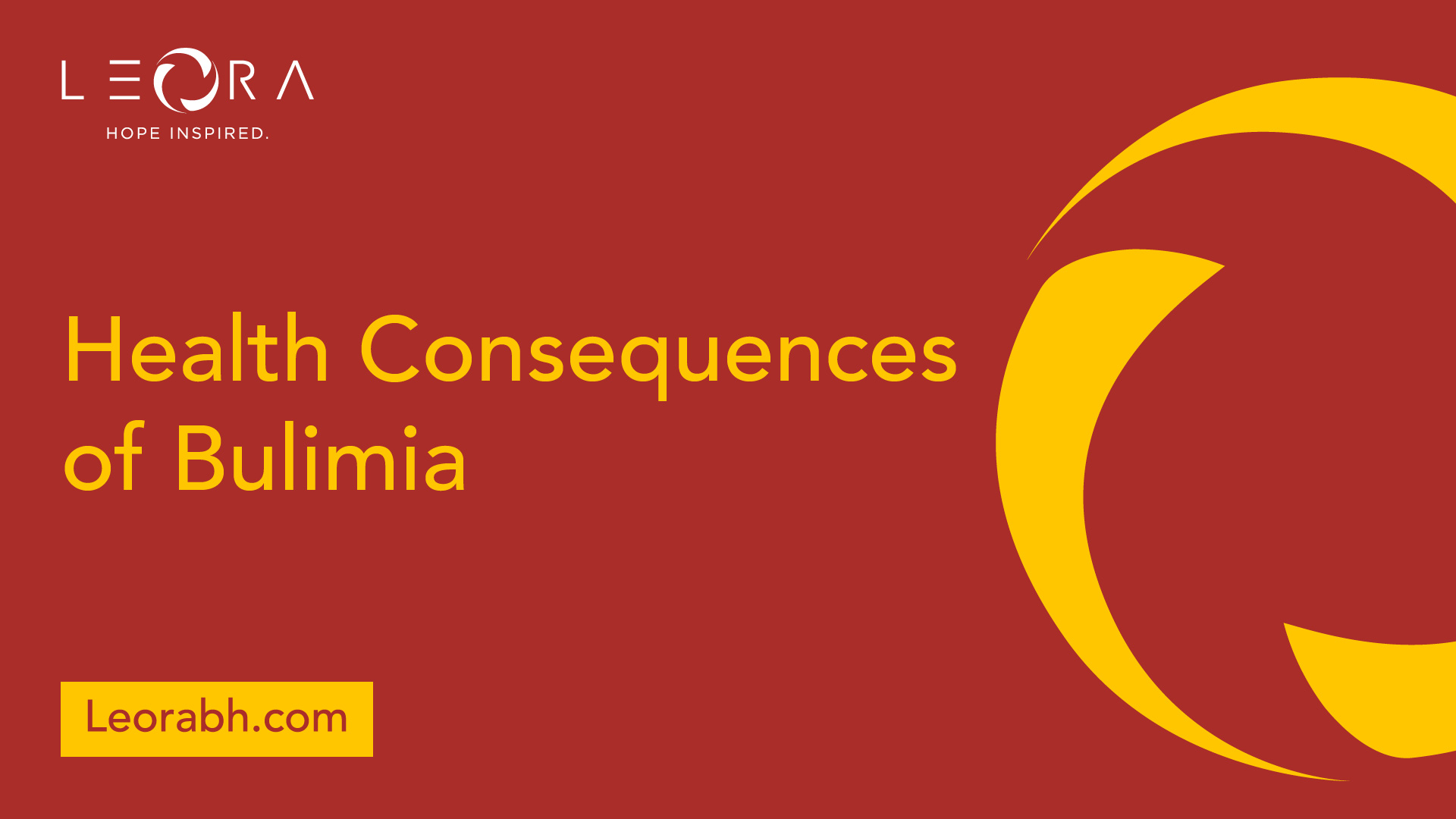Common Signs of Bulimia: Understanding the Warning Signs
Recognize the common signs of bulimia. Discover the physical, behavioral, and psychological indicators. Seek help and support today.
Signs of Bulimia
Recognizing the signs of bulimia is crucial for early intervention and support. Bulimia nervosa, commonly referred to as bulimia, is an eating disorder characterized by recurrent episodes of binge eating followed by compensatory behaviors such as self-induced vomiting, excessive exercise, or misuse of laxatives. Here, we will explore the physical, behavioral, and psychological signs commonly associated with bulimia.

Physical Signs of Bulimia
Physical signs can often indicate the presence of bulimia. These signs may include:
- Frequent trips to the bathroom after eating, which may indicate self-induced vomiting
- Presence of wrappers or packages of laxatives or diuretics
- Swollen cheeks or jaw due to the enlargement of salivary glands
- Scars on the back of hands or knuckles from contact with teeth during induced vomiting
- Stained teeth from exposure to stomach acid during vomiting
It's important to note that these physical signs may vary among individuals, and not everyone with bulimia will display all of these symptoms. If you or someone you know is experiencing these physical signs, seeking professional help is crucial for proper diagnosis and treatment.
Behavioral Signs of Bulimia
Behavioral changes can also indicate the presence of bulimia. Some common behavioral signs include:
- Frequent fluctuations in weight, often due to cycles of binge eating and purging
- Avoiding eating with others or making excuses to eat alone
- Excessive use of laxatives or diuretics as a means of weight control
- Hoarding or hiding food, especially high-calorie or binge-triggering foods
- Engaging in excessive exercise or strict dieting to compensate for binge episodes
These behaviors may be driven by feelings of guilt, shame, or a distorted body image. If you notice these behavioral changes in yourself or someone else, it's important to seek help from a healthcare professional or eating disorder specialist.
Psychological Signs of Bulimia
Psychological signs play a significant role in identifying bulimia. These signs may include:
- An obsession with body weight, shape, and appearance
- Preoccupation with food, calories, and dieting
- Feelings of guilt, shame, or self-disgust after binge eating episodes
- Mood swings, irritability, or difficulty concentrating
- Low self-esteem and a distorted perception of one's body
Individuals with bulimia may also experience anxiety, depression, or other mental health issues. It's crucial to remember that these psychological signs can vary among individuals, and a professional evaluation is necessary for an accurate diagnosis.
Recognizing the signs of bulimia is an important step towards seeking help and support. If you or someone you know is experiencing these signs, reaching out to healthcare professionals, therapists, or helpline services can provide the necessary guidance and resources for recovery.

Health Consequences of Bulimia
Bulimia can have significant health consequences that affect various aspects of the body. It is important to be aware of these consequences in order to recognize the severity of the disorder and seek appropriate help. The health consequences of bulimia include dental complications, electrolyte imbalances and dehydration, and gastrointestinal issues.
Dental Complications
Individuals with bulimia often engage in self-induced vomiting, which can lead to dental complications. The stomach acid that comes into contact with the teeth during vomiting can erode the tooth enamel, leading to thinning and discoloration of the teeth. This erosion can cause teeth to appear clear instead of white and make them more sensitive to hot or cold temperatures. Dental cavities and gum disease are also common in individuals with bulimia due to the repeated exposure of teeth and gums to stomach acid.
Tooth enamel erosion and other dental complications can have a significant impact on oral health and may require dental interventions to restore the teeth and gums to a healthy state.
Electrolyte Imbalances and Dehydration
Bulimia can disrupt the body's electrolyte balance, leading to imbalances in essential minerals such as potassium, sodium, and chloride. Frequent vomiting and the use of laxatives or diuretics can cause these imbalances. Electrolytes play a crucial role in maintaining proper fluid balance, muscle function, and heart rhythm. When electrolyte imbalances occur, they can have serious consequences for overall health, including the potential for life-threatening conditions.
Dehydration is another health consequence of bulimia. The loss of fluids through vomiting and the use of diuretics can lead to dehydration, which can impact various bodily functions and organs. Dehydration can cause weakness, fatigue, dizziness, and even fainting. If left untreated, severe dehydration can be life-threatening.
Gastrointestinal Issues
Bulimia can lead to a range of gastrointestinal issues. The repeated episodes of bingeing and purging can result in gastrointestinal bleeding, inflammation of the esophagus (esophagitis), and stomach ulcers. The constant exposure of the digestive system to stomach acid can cause irritation and damage to the lining of the esophagus and stomach.
Gastrointestinal problems can cause symptoms such as abdominal pain, heartburn, difficulty swallowing, and nausea. If left untreated, these issues can lead to more serious complications and long-term damage to the digestive system.
It is crucial to recognize that these health consequences are potential risks of bulimia. If you or someone you know is struggling with bulimia, seeking help from healthcare professionals, therapists, and support groups is essential. Early intervention and appropriate treatment can help mitigate these health consequences and promote recovery and overall well-being.

Risk Factors and Prevalence of Bulimia
Understanding the risk factors and prevalence of bulimia is essential for recognizing the signs and supporting those who may be affected by this eating disorder.
Demographics and Age Groups
Bulimia nervosa can affect individuals of all genders, ages, classes, abilities, races, and ethnic backgrounds, according to the [1].
According to the Nationwide Children's Hospital, bulimia is more prevalent in teenage girls and women in their early 20s. However, it's important to note that all young people are at risk of developing this disorder. The exact prevalence of bulimia can vary, but it is estimated that between 1% and 2% of people will experience bulimia during any given year.
Warning Signs for Parents
Parents play a crucial role in recognizing the warning signs of bulimia and providing support to their children. Some common signs to be aware of include:
- Frequent trips to the bathroom after meals
- Excessive concern about body weight and shape
- Obsession with food, dieting, and calorie counting
- Extreme mood swings or irritability
- Disappearing during or after meals
- Use of laxatives, diuretics, or other medications to control weight
- Excessive exercise or compulsive physical activity
- Wearing loose or baggy clothing to hide body shape
- Changes in weight or fluctuations in weight
If parents notice any of these signs or suspect their child may be struggling with bulimia, it is important to approach the situation with empathy and understanding. Open communication and seeking professional help are crucial steps in supporting their child's recovery journey.
By understanding the demographics and age groups most commonly affected by bulimia, as well as the warning signs for parents to watch out for, we can increase awareness and promote early intervention for those at risk. Remember, eating disorders are serious illnesses that can affect anyone, and recovery is possible with the right support and treatment.
Seeking Help for Bulimia
Recognizing the signs of bulimia is an important first step, but seeking help and appropriate treatment is crucial for recovery. There are various treatment options available for individuals with bulimia, including psychotherapy and counseling, as well as medications in some cases.
Treatment Options for Bulimia
The treatment of bulimia often involves a multidisciplinary approach, addressing both the physical and psychological aspects of the disorder. It is important to note that while medications can be a part of the treatment plan, psychotherapy is considered a more effective means of treatment for bulimia compared to pharmaceutical drugs alone [2].
Psychotherapy, particularly cognitive-behavioral therapy (CBT), is commonly used in the treatment of bulimia. CBT helps individuals with bulimia address their symptoms, emotions, and behaviors. It aims to break the binge-purge cycle, identify triggers, develop coping strategies, and promote healthier thought patterns and behaviors.
Nutritional counseling by dieticians and healthcare professionals is an integral part of treating bulimia. These professionals can assist in creating personalized eating plans that focus on achieving a healthy weight, practicing good nutrition, and developing long-term healthy eating habits. These plans are designed to combat cravings and binge eating behaviors without restricting individuals from certain foods that may have contributed to their eating disorder.
Psychotherapy and Counseling
Psychotherapy and counseling play a significant role in the treatment of bulimia. This therapeutic approach provides a safe and supportive environment for individuals to explore the underlying issues contributing to their eating disorder. It helps them develop healthier coping mechanisms, improve self-esteem, and address body image concerns.
Cognitive-behavioral therapy (CBT) is a widely used form of psychotherapy for bulimia. It focuses on identifying and challenging negative thoughts and beliefs surrounding body image, food, and self-worth. Additionally, CBT helps individuals develop strategies to manage stress, regulate emotions, and establish healthier eating habits.
Group therapy and support groups can also be beneficial for individuals with bulimia. These settings provide a sense of community and allow individuals to share their experiences, challenges, and successes with others who can relate. Group therapy can provide valuable insights, encouragement, and support throughout the recovery journey.
Medications for Bulimia
Medication may be prescribed in conjunction with psychotherapy for the treatment of bulimia, particularly when there are underlying mental health conditions such as depression or anxiety. Antidepressants, specifically selective serotonin reuptake inhibitors (SSRIs), are commonly used to help balance serotonin levels and reduce symptoms of bulimia [2].
It is important to note that medication should always be prescribed and monitored by a healthcare professional. The decision to use medication as part of the treatment plan should be made on an individual basis, taking into consideration the person's medical history, symptoms, and specific needs.
In severe cases of bulimia, hospital-based treatment or rehabilitation centers may be necessary, especially when frequent bingeing and purging pose serious health complications. These settings provide round-the-clock supervision, medical care, and support for individuals working towards establishing healthy eating patterns and engaging in therapy sessions.
Remember, seeking help from a qualified professional is essential for the successful treatment of bulimia. The treatment plan may vary for each individual, and it is important to work closely with healthcare providers to develop a comprehensive approach tailored to specific needs and circumstances.
Support and Resources for Bulimia
When dealing with bulimia, seeking support and accessing helpful resources is crucial. There are organizations and helpline services available that provide assistance and guidance to individuals affected by bulimia and related concerns. Here are some valuable support options:
National Eating Disorder Information Centre (NEDIC)
The National Eating Disorder Information Centre (NEDIC) is a prominent organization that operates Canada's only national toll-free helpline and live chat service. With a commitment to breaking the shame, stigma, and silence surrounding eating disorders, NEDIC offers resources, referrals, and support to individuals across the country impacted by disordered eating.
NEDIC provides assistance to nearly 1 million Canadians living with a diagnosable eating disorder, as well as millions of others struggling with food and weight preoccupation. Their helpline, email, and live chat services are available from 9 am to 9 pm Monday through Thursday, 9 am to 5 pm on Friday, and 12 pm to 5 pm on Saturday and Sunday (all times EST) [3].
Helpline and Live Chat Services
NEDIC's helpline and live chat services offer a safe and confidential space for individuals seeking support and information about bulimia. Trained professionals are available to provide resources, referrals, and compassionate assistance to those who reach out.
The helpline and live chat services are accessible to people across Canada, and the hours of operation are as follows (all times EST):
Here are the hours when you can reach us for help:
DayHelpline HoursLive Chat Hours
- Monday to Thursday: 9 am to 9 pm
- Friday: 9 am to 5 pm
- Saturday and Sunday: 12 pm to 5 pm
We're available for live chat during the same hours.
Recovery and Hope for Bulimia
NEDIC believes in the power of open, supportive dialogue to break the shame, stigma, and silence surrounding those affected by eating disorders. They aim to provide hope and resources to individuals who may be struggling with disordered eating.
Recovering from bulimia is possible, and seeking support can make a significant difference in the journey towards healing. By reaching out to organizations like NEDIC, individuals affected by bulimia can access the necessary tools, guidance, and encouragement to navigate their recovery path.
When dealing with bulimia, it is important to remember that you are not alone. Support and resources are available to assist you every step of the way. Don't hesitate to reach out for help and take the first step towards recovery.
References
Find Your Inner Light
Related Articles
Contact Us
Leora Behavioral Health offers a comprehensive addiction treatment programs to help you get your life back on track.
Our trained professionals will work with you to develop a personalized treatment plan that meets your unique needs. If you or someone you know is struggling with addiction, reach out to Leora Behavioral Health today.


.svg)





.svg)
.svg)
.svg)
.svg)